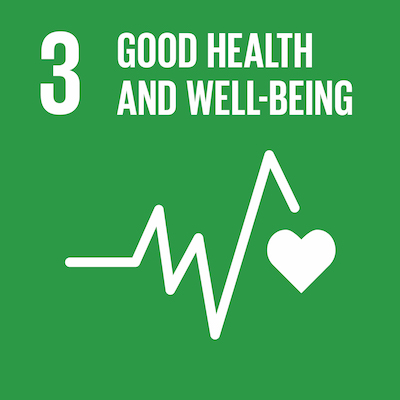The Science Council of Japan made the very interesting exercise of classifying the resolutions it adopted in the period 2014-2017 according to the SDGs. Let’s have a look at SDG3.
Previous post on the same topic
 SDG3: Good health and well-being
SDG3: Good health and well-being
Ensure healthy lives and promote well-being for all at all ages
Dental and oral health care settings should also be utilized for smoking prevention and smoking cessation support
This policy recommendation proposed to structure the organization to utilize preventive, clinical and health educational settings of oral diseases for smoking prevention and smoking cessation support. It is important to take advantage of school dentists for smoking prevention activities, and to strengthen smoking cessation supports at dental practice settings in the national health insurance system. Such endeavors will contribute to health promotion in this country by accelerating prevention of periodontal diseases and oral cancer. Simultaneously, it is necessary to establish more close cooperation between dental and medical care, and to reinforce pre- and post-graduate education of dentists regarding smoking prevention.
Urgent proposal for the negative impact on research activities by upper limit setting of clinical resident applicants
Regarding the upper limit setting of clinical resident applicants by Japan Specialist Organization in 2018, JSC proposed that efforts not only on clinical activities, but also on research and education activities, should be integrated to avoid the negative impact on research performances.
Protection of people’s health: Health problems induced by daylight saving time; Warning based on scientific evidence
In July 2018, the organizer of Tokyo Olympics 2020 proposed to introduce daylight saving time (DST) as a precaution against heat during the Olympics. The Japanese government finally abandoned DST for the Olympics due to a lack of preparation time and of public support. However, the effects of DST on human health have not been considered despite abundant evidence demonstrating DST-related health problems.
Consider the following:
- DST interferes with the biological clock function, hence, induces insomnia, increases incident of acute myocardial infarction and causes traffic accidents. JSC oppose introducing DST, which would increase the risk of health problems for Japanese, who already sleep less than most people in the world.
- Under DST, the rush hour would correspond to the hottest time in a day and indoor temperature during sleep time would increase, which enhances the risk of heat stroke, especially among elderly and infants. We should protect people from health impairments by abandoning DST.
Good medical care given to everyone: Construction of next-generation healthcare platform to realize sustainable best medical treatment
In an aging society, it is an urgent task to improve the quality of medical care while controlling medical expenses. Currently, it is a problem that the clinical data of patients are not accumulated in the form of being utilized, and cannot not be used for verification. Nationwide databases are effective, especially for verifying the effect of novel therapies, on the assumption that personal information is adequately protected. JSC proposed the construction and utilization of “medical platform” based on a database.
Development of advanced medical technology with understanding by people in society: Genome Editing Technology in Medical Sciences and Clinical Applications in Japan
This is the SCJ’s first recommendation regarding the medical uses of genome editing. The committee concluded that we should carefully proceed with its development to treat patients with intractable diseases, while requesting a moratorium on the clinical application by genetically modifying human germ cells and embryos. More discussions in society were expected regarding the use of genome editing for basic research and clinical application.
More safe examination that anyone can undergo: Recommendation on reduction of medical radiation exposure by CT examinations
Do you know the fact that “Japanese and USA’s medical radiation exposure dose is the highest in the world and keeps increasing”? The average exposure dose Japanese people receive is about 6 mSv per year, but the average exposure dose by CT is several to a dozen mSv per examination. It would be better to receive a CT examination, but there is no doubt that there is a need to reduce it. JSC proposed a policy for that.
Consideration for the health of visitors to Japan: Emergency recommendation for the establishment of the Tokyo passive smoking prevention ordinance
You may think “why is it limited only for Tokyo?” This is for the 2020 Tokyo Olympic and Paralympic. It is a problem if sports fans coming to watching them from abroad are exposed to second-hand smoke in public places. JSC made an urgent recommendation to Tokyo metropolitan government to implement laws (regulation) to prevent passive smoking in public places.








